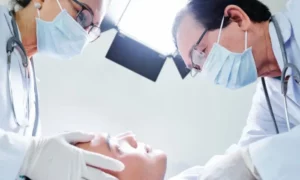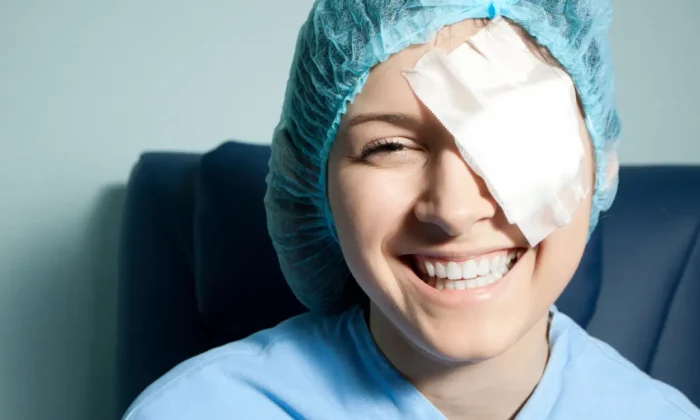Considering RLE surgery for improved vision? Navigating the world of medical procedures can be daunting, but you’re in the right place to get clarity. In this guide, we’ll walk you through the must-know precautions both before and after your RLE surgery. From the simplest preparations to the essential post-surgery care, you’ll discover step-by-step insights to ensure a smooth and successful procedure. Let’s embark on this journey towards clearer vision, together!
Contents
Introduction to RLE Surgery
Refractive Lens Exchange (RLE) surgery, as the name suggests, is a procedure where the eye’s natural lens is replaced with an artificial one. This surgery is primarily performed to correct refractive errors in the eye, such as myopia (nearsightedness), hyperopia (farsightedness), and presbyopia (difficulty reading with age). Unlike traditional cataract surgery where the primary goal is to remove the cloudy lens, RLE is primarily chosen for vision correction, even before cataracts have developed. By replacing the eye’s natural lens with an artificial intraocular lens (IOL), RLE offers the advantage of potentially eliminating the need for glasses or contact lenses, providing you with clearer, sharper vision.
Pre-Surgery Preparations
Before stepping into the operating room for an RLE surgery, it’s crucial to ensure you are both physically and mentally geared up for the procedure. Here’s what you should focus on:
- Physical Health Check: Before the surgery, make sure you are in optimal health. Any existing conditions, especially related to the eyes or systemic issues like diabetes or thyroid problems, need to be communicated to the surgeon. These conditions might influence the outcome of the surgery or the healing process.
- Medication Review: It’s essential to inform your doctor about all the medications, supplements, or over-the-counter drugs you’re currently taking. Some medicines can interfere with the surgery or might affect post-surgery healing.
- Mental Preparation: Understandably, the thought of surgery can be daunting for many. Thereofore, it’s essential to discuss any anxieties or concerns you have with your doctor. They can provide reassurances, explain the procedure in depth, and offer insights that will help you approach the surgery with confidence.
- Avoid Makeup: On the day of the surgery, it’s crucial to avoid any makeup, especially around the eyes. This minimizes the risk of post-operative infections.
- Hair Care: It’s recommended to wash your hair on the day of or the day before the surgery, as post-surgery, you’ll need to avoid getting water in your eyes for some time.
By taking these pre-surgery preparations seriously, you’re not only ensuring the best possible outcome for the surgery but also significantly reducing the risk of post-operative complications.
Day of the Surgery: Final Precautions
 The day of your RLE surgery is pivotal, and taking some final precautions can help ensure everything goes smoothly. Here are steps to follow on the big day:
The day of your RLE surgery is pivotal, and taking some final precautions can help ensure everything goes smoothly. Here are steps to follow on the big day:
- Avoid Makeup: Keep your face, especially the eye area, free from makeup, creams, or lotions. These can introduce contaminants to the eye, which may lead to infections.
- Clean Hair: It’s advisable to have clean hair as it minimizes the risk of any particles or residues coming into contact with your eyes post-surgery. Consider washing your hair the morning of the surgery or the night before.
- Wear Comfortable Clothing: Opt for loose, comfortable clothing. This helps in staying relaxed before and after the surgery, and also ensures ease of movement.
- Fasting: Depending on the type of anesthesia used, you may be required to fast for several hours before the procedure. Your doctor will provide specific instructions about eating and drinking.
- Arrive Early: Try to arrive at the surgical center a bit early. This gives you ample time to complete any last-minute paperwork, ask any final questions, and settle down before the procedure.
- Mental Calmness: Keep yourself calm. Engage in deep breathing or meditation if you feel nervous. Remember, you’re in the hands of professionals trained to take the best care of you.
Following these guidelines will help set the stage for a successful surgery and contribute to a smooth and hassle-free experience.
Immediate Post-Surgery Care
 The moments following your RLE surgery are crucial for kickstarting a successful healing process. Taking the right steps can make a significant difference in your recovery experience and the outcome of the procedure. Here’s what you need to know about immediate post-RLE surgery precautions:
The moments following your RLE surgery are crucial for kickstarting a successful healing process. Taking the right steps can make a significant difference in your recovery experience and the outcome of the procedure. Here’s what you need to know about immediate post-RLE surgery precautions:
- Protective Eyewear: After the surgery, you’ll be provided with protective eyewear or a shield. This is to prevent any foreign objects, light, or accidental touches from affecting your treated eyes. Ensure you wear it as recommended by your surgeon, especially while sleeping for the first few nights.
- Brightness Sensitivity: You may experience sensitivity to light immediately after the surgery. It’s a good idea to wear sunglasses when heading home or if exposed to bright environments in the first few days.
- Transportation Plans: It’s essential to arrange for someone to drive you home post-surgery, as your vision may be blurry or you might feel drowsy from any sedatives.
- Rest and Relax: Once you’re home, take it easy. Rest your eyes by keeping them closed and avoid any strenuous activities. Taking a nap can be beneficial.
- Initial Medications: Your doctor will prescribe certain eye drops or medications to prevent infections and reduce inflammation. Make sure you understand the dosage and application instructions before leaving the clinic.
- Stay Hydrated: Drink ample water, but avoid alcoholic or caffeinated beverages for the first 24 hours.
Remember, the immediate care you provide to your eyes post-RLE surgery sets the foundation for the subsequent healing process. It’s vital to follow all guidelines and instructions diligently to ensure optimal recovery and results.
The Recovery Period: First 10 Days
 The initial 10 days following your RLE surgery are pivotal in ensuring the success of the procedure and your overall eye health. Here’s a breakdown of what you need to keep in mind during this crucial recovery phase:
The initial 10 days following your RLE surgery are pivotal in ensuring the success of the procedure and your overall eye health. Here’s a breakdown of what you need to keep in mind during this crucial recovery phase:
- Avoid Water Contact: Ensure that no water enters your eyes, especially during showers or while washing your face. Consider using a washcloth to cleanse around your eyes gently.
- No Eye Rubbing: Your eyes might feel itchy or foreign during the first few days. However, rubbing them can displace the healing tissue, increase the risk of infections, or even harm the surgical site. If you feel discomfort, use the prescribed eye drops or gently close your eyes for relief.
- Limit Screen Time: Minimize the time spent on computers, smartphones, or watching television. Extended screen time can strain your eyes and delay the healing process.
- Protective Eyewear: Continue using the protective eyewear, especially at night, to prevent accidental rubbing or poking while sleeping.
- Outdoor Precautions: If you venture outdoors, always wear sunglasses to shield your eyes from UV rays and dust. Additionally, avoid dusty environments or places where there’s a risk of foreign particles entering your eyes.
- Avoid Strenuous Activities: Refrain from heavy lifting, vigorous exercises, or any activities that increase pressure in the eyes. Gentle walks are permissible, but always consult with your doctor before resuming your normal exercise routine.
- Checkups: Attend all scheduled follow-up appointments with your eye surgeon. These check-ins allow the doctor to monitor your healing progress and address any concerns you might have.
- Sleep Well: Ensure you get adequate rest during this period. Sleep promotes healing and helps your body recover faster.
- Stay Alert to Complications: While rare, complications can arise. Be attentive to symptoms like increased redness, sudden vision changes, pain, or any unusual discharge from the eyes. If you notice anything concerning, contact your doctor immediately.
By adhering to these precautions during the initial recovery phase, you pave the way for a smooth healing journey and optimize the outcomes of your RLE surgery.
Conclusion
In conclusion, it’s vital to take these precautions seriously, ensuring you experience the best possible outcome after RLE surgery. Are you considering a leap towards clearer vision? Experience the freedom and transformation that RLE surgery promises. Choose EyeMantra for your journey to visual clarity. Don’t wait any longer; your improved vision is just a call away. Book your free appointment now at 9711116605.
FAQs
Is it safe to drive immediately after the procedure?
You should not drive immediately after the surgery. Your vision might be blurry, and your eyes may be sensitive. It’s recommended to wait at least 24-48 hours and to consult with your surgeon before getting back behind the wheel.
How soon can I return to work after RLE surgery?
Depending on the nature of your job, most patients can return to work after 2-4 days. However, if your occupation involves strenuous activities or direct exposure to dust and other contaminants, it might be best to wait a bit longer.
When can I resume exercising?
Light exercises like walking can be resumed a few days post-surgery. However, avoid activities that increase eye pressure, such as lifting heavy weights, yoga inversions, or high-intensity workouts, for at least two weeks.
What should I do if I accidentally rub my eyes after the surgery?
If you accidentally rub your eyes, don’t panic. Gently close your eyes for a moment and avoid further touching. If you experience any discomfort, pain, or changes in vision, contact your doctor.
Do I need to wear sunglasses indoors?
Immediately post-surgery, your eyes might be sensitive to light. While it’s not mandatory, wearing sunglasses indoors can offer comfort during this period.
What signs should prompt me to contact my doctor?
If you experience persistent pain, sudden vision changes, increasing redness, swelling, discharge, or any other unusual symptoms, it’s essential to reach out to your eye surgeon promptly.



